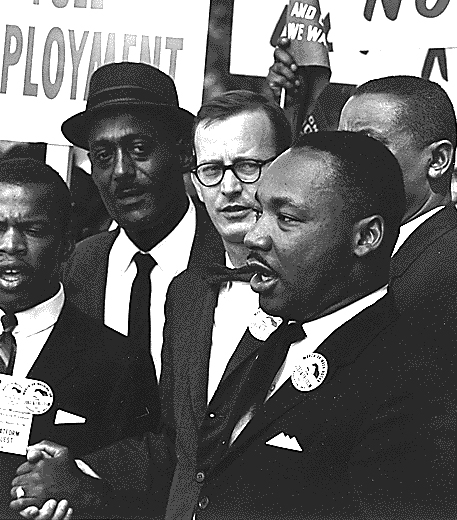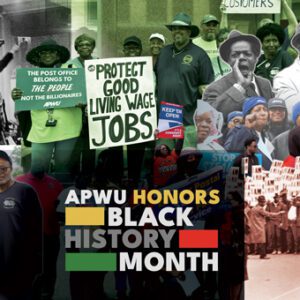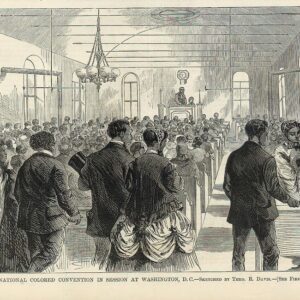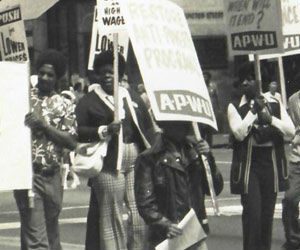January 13, 2023
Looking Back: This Time in Our Labor History – Martin Luther King Jr.
This article is an exerpt from the "Looking Back: This Time in Our Labor History" article in the January/February issue of the American Postal Worker

Rev. Dr. Martin Luther King at the
1963 Civil Rights March on Washington DC
“The labor movement was the principal force that transformed misery and despair into hope and progress.” – Martin Luther King Jr.
On Jan. 15 1929 – Civil Rights icon Reverend Dr. Martin Luther King Jr. was born.
On Monday we observe the Martin Luther King Jr. Day federal holiday honoring one of our nation’s all-time great civil and workers’ rights leaders. But winning the holiday to recognize King’s legacy was a struggle in itself.
Legislation to recognize MLK Day was finally passed in 1983 after a multiple-year effort to overcome congressional opposition. Campaigners including the King family and singer Stevie Wonder collected six million petition signatures. Wonder’s worldwide hit “Happy Birthday” was both a celebration of King’s life and a call to recognize his birthday.
King was a champion of working people and labor unions which he saw as integral to his work in promoting civil rights. At the time of his assassination in Memphis TN in 1968 he was supporting striking sanitation workers.
Despite federal recognition of the holiday effective January 1986 postal management opposed observing a tenth annual holiday in the 1984-1987 union contract. The presentation was made at interest artibtration by then Executive Vice-President later President Bill Burrus who spoke on behalf of the joint APWU-NALC bargaining committee. After a rousing presentation it was included in Arbitrator Kerr’s award and the holiday was secured in the National Agreement.
“This annual holiday will serve as a reminder of a great American hero who was assassinated while supporting a peaceful union struggle in Memphis Tennessee. It is a tribute to the struggle waged by Dr. King for freedom justice and equality for all people,” wrote then-APWU President Moe Biller at the time.



